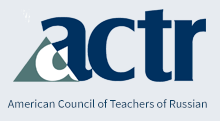Russian Language Journal
Keywords
COVID-19 pandemic, synchronous instruction, online instruction, Russian language programs
Abstract
Due to the COVID-19 pandemic, most domestic language programs had to transition quickly to teaching online, often as emergency remote teaching, and many likely will retain some online offerings after the health crisis. This study’s goal was to compare the language gains of students in two intensive Russian summer language programs: 2019 face-to-face immersion and 2020 intensive synchronous online. Testing data included the results of entrance and exit oral, writing, and lexico-grammatical tests from 125 students in the face-to-face program and 59 students in the online program. The analyses revealed comparable learning gains in the 2019 and 2020 programs for oral proficiency. Marginally higher writing gains were found in the online program at all proficiency levels combined. Significantly higher gains in lexico-grammatical competence were found in the F2F program, particularly at the Intermediate level. The study contributes toward our understanding of the effectiveness of online language instruction vs. traditional face-to-face programs. Based on the findings, the study concludes with administrative and curricular recommendations for those offering Russian in online or immersion formats and suggest future directions for research.
Recommended Citation
Merrill, J., Dengub, E., & Pastushenkov, D. (2021). Language Gains in Intensive Synchronous Online and Face-to-Face Russian Immersion Programs: A Comparison. Russian Language Journal, 71(2). https://doi.org/10.70163/0036-0252.1006


